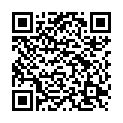|
|
|
| Module code: BIBW-410 |
|
|
4SU (4 hours per week) |
|
5 |
| Semester: 4 |
| Mandatory course: yes |
Language of instruction:
English |
Assessment:
Term paper with presentation (can be repeated annually)
[updated 14.03.2018]
|
BIBW-410 (P420-0193) International Business, Bachelor, ASPO 01.10.2013
, semester 4, mandatory course
BIBW-410 (P420-0193) International Business, Bachelor, ASPO 01.10.2017
, semester 4, mandatory course
|
60 class hours (= 45 clock hours) over a 15-week period.
The total student study time is 150 hours (equivalent to 5 ECTS credits).
There are therefore 105 hours available for class preparation and follow-up work and exam preparation.
|
Recommended prerequisites (modules):
BIBW-250 Soft Skills and Office Management
[updated 22.02.2018]
|
Recommended as prerequisite for:
BIBW-510 Study Abroad (practical study phase)
[updated 26.02.2018]
|
Module coordinator:
Prof. Dr. Stefanie Jensen |
Lecturer:
Prof. Dr. Petra Garnjost
Prof. Dr. Kerstin Heuwinkel
Prof. Dr. Stefanie Jensen
[updated 22.02.2018]
|
Learning outcomes:
Learning outcomes/skills:
After successfully completing this module, students will, _
_ be able to explain and apply central concepts of cultural theory,
_ be able to provide an overview of management styles and dos + don´ts in the day-to-day business of selected national cultures,
_ be capable of explaining the specifics of selected national cultures with regard to history, national culture, economic situation and touristic highlights,
_ be able to independently research content on selected national cultures and evaluate it on the basis of specified criteria,
_ be able to work in a group successfully and independently in a goal-oriented manner and within a sepcific time limit. This includes the independent distribution of work packages within the group, their individual preparation by the respective group members and a group presentation. This also includes resolving any conflicts that might arise within the group or escalating them to the lecturers.
_ Students will be able to prepare a written paper in English, taking into account scientific principles, and deliver a presentation in English within a specified timeframe.
[updated 14.03.2018]
|
Module content:
_ Knowledge from the field of cultural research, for example by participating in the European Spring Academy in cooperation with the European Academy Otzenhausen.
_ This interdisciplinary course will make students familiar with the culture, as well as the economic and touristic core data of a country and their influence on management styles and practices in everyday business, based on current topics (partly supplemented by excursions).
_ Structured discussions and exercises.
_ Structured project work in a team with a written composition and presentation of the team´s results using modern presentation techniques.
[updated 14.03.2018]
|
Teaching methods/Media:
Lecture with high student participation, discussions, group work, group presentations, written compositions
[updated 14.03.2018]
|
Recommended or required reading:
Always the latest edition:
_ Deresky, Global Management, New Jersey
_ Hofstede/Hofstede/Minkov, Cultures and Organizations, McGrawHill (USA)
_ Lewis, When Cultures Collide Nicholas Brealey International, (USA)
_ Rothlauf, Interkulturelles Management, München/Wien
_ Rodrigues, C.; International Management: A Cultural Approach, Cincinnati (Ohio)
_ Schneider/Barsoux, Managing Across Cultures, Harlow (UK)
Additional literature on selected national cultures.
[updated 14.03.2018]
|


